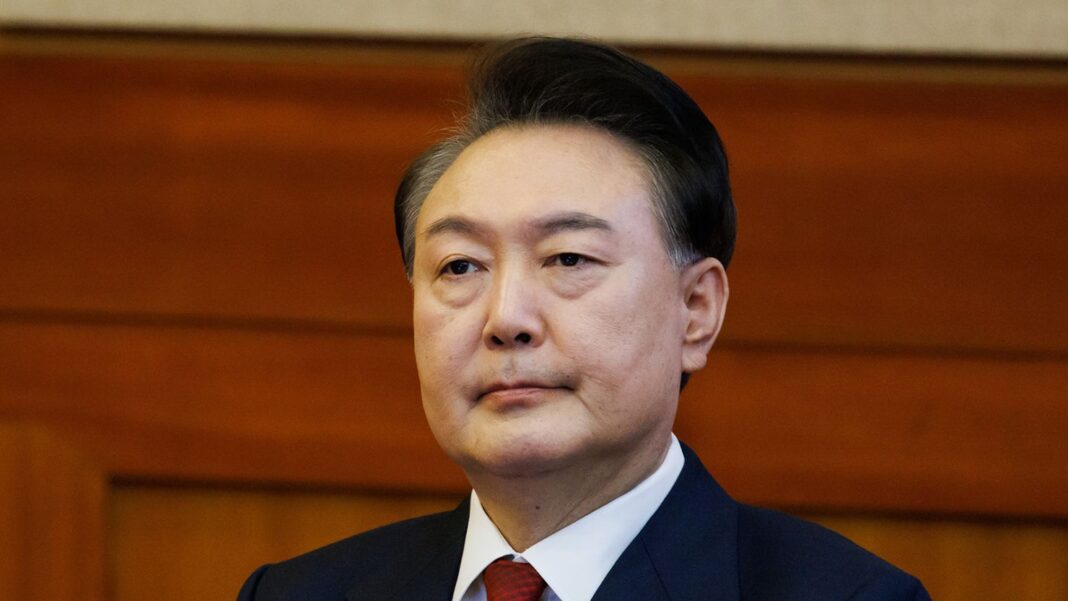South Korea’s Constitutional Court made a historic decision on Friday by officially removing President Yoon Suk Yeol from office. The decision came after Yoon’s impeachment was upheld by the court. This marks a rare and serious event in the country’s political history.
Constitutional Court Makes Historic Ruling
The ruling was read out loud by acting court chief Moon Hyung-bae and was broadcast live on national television. The court’s decision took effect immediately. This means Yoon stopped being president the moment the ruling was announced.
Because of this, the country now has to hold a new presidential election. This snap election must happen within 60 days. Many believe the election will take place on June 3.
Yoon was originally impeached by the National Assembly, South Korea’s law-making body, back in December. The Assembly is currently controlled by the opposition, who accused Yoon of breaking the country’s laws and Constitution.
Martial Law and Military Orders Spark Controversy
The impeachment stemmed from an event that took place on December 3. On that day, President Yoon declared martial law. Martial law is when the military is given control over normal government operations. It is usually used only in extreme emergencies.
Yoon’s decision shocked the public and many lawmakers. He sent military troops to the National Assembly, which is supposed to be a safe place for lawmakers to meet and make decisions. The troops were reportedly ordered to stop lawmakers from voting against the martial law declaration.
According to the impeachment charges, Yoon also ordered the arrest of several politicians who disagreed with him. These actions were seen by many as an abuse of power. Critics said the president tried to silence the people’s representatives and use the military for his own goals.
The opposition lawmakers quickly responded. Within weeks, they passed a motion to impeach Yoon, arguing that his actions violated the Constitution and democratic principles of the country.
Immediate Impact and Public Reaction
The court’s final ruling confirmed the charges brought by the National Assembly. It agreed that Yoon had indeed acted unconstitutionally by declaring martial law without a valid reason. The use of military force against lawmakers was seen as a major violation of the rules that guide the country.
As soon as the verdict was announced, President Yoon was officially removed from his position. He no longer has the powers or duties of a president. A temporary leader will handle the responsibilities of the presidency until the snap election is held.
Public reaction across the country has been mixed. Some citizens have expressed relief and support for the court’s decision, saying it protects democracy and the rule of law. Others, especially Yoon’s supporters, say the impeachment was politically motivated. They argue that the president was only trying to maintain order during a difficult time.
Yoon, for his part, has denied all the charges. He says he never intended to break the law and that he was trying to prevent chaos in the country. However, the court found the evidence against him to be strong enough to uphold the impeachment.
With the ruling now final, South Korea moves forward under temporary leadership until a new president is elected. The election must happen within 60 days from the date of the ruling.
This is only the second time in South Korea’s history that the Constitutional Court has removed a sitting president from office, the first being in 2017 when President Park Geun-hye was impeached over a major corruption scandal. While that case involved secret dealings and abuse of power through close aides, the current impeachment of President Yoon Suk Yeol is based on his sudden declaration of martial law and use of military force against lawmakers. Despite the different circumstances, both cases underline a powerful message: no leader is above the Constitution. The court’s ruling shows that South Korea’s democratic system has strong checks and balances in place to hold even the highest officials accountable for their actions.

